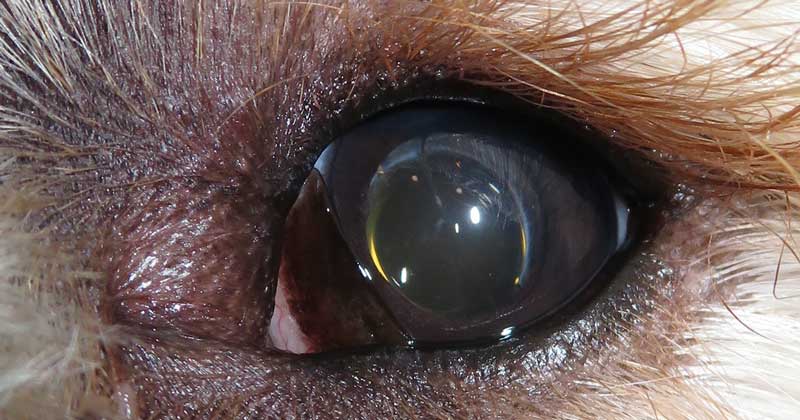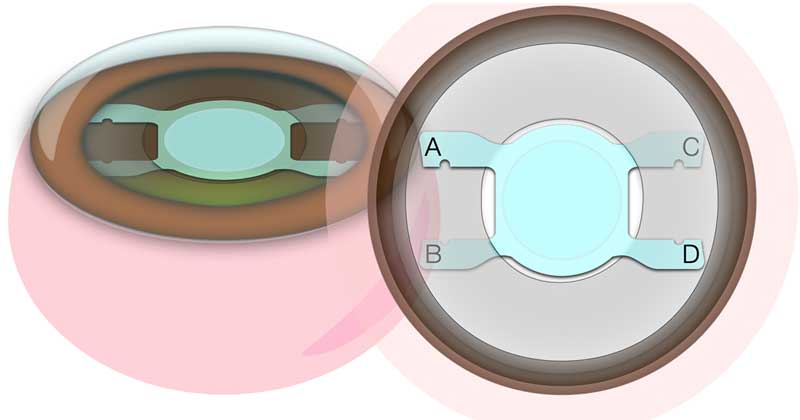17 Jun 2022
Gary Lewin and Chris Dixon of Veterinary Vision have published a paper on their successes fitting a rhexis-fixated prosthetic intraocular lens in dogs undergoing lens removal.

Veterinary Vision has recorded a huge success rate with a novel cataract procedure for dogs that may not have otherwise been suitable candidates for sight-saving surgery. Pictured is clinical director Chris Dixon in surgery.
Two ophthalmologists at a specialist referral practice have reported significant success with a novel cataract procedure in dogs that would otherwise not have been considered suitable for sight-saving surgery.
Ophthalmologists Gary Lewin and Chris Dixon, from Linnaeus-owned Veterinary Vision, have published a paper on their successes fitting a rhexis-fixated prosthetic intraocular lens (IOL) in dogs undergoing lens removal.
The technique the duo has developed enables the surgeon to suspend a modified acrylic lens from a damaged capsule, which has historically not been possible.

So far the pair have used the technique in 28 dogs, and their findings have been published in the Journal of Small Animal Practice. [https://onlinelibrary.wiley.com/doi/abs/10.1111/jsap.13443]
Surgery was carried out in a total of 30 eyes using a modified acrylic IOL, where the lens capsule could not accommodate a conventional prosthetic endo-capsular IOL.
Over a follow-up period from three to 76 months, 26 of the 30 eyes remained visual.

Mr Dixon said: “It’s a novel technique for implanting a prosthetic lens into the eyes of patients who otherwise may have not been suitable for surgery, either saving or restoring their sight.
“Gary developed a method of modifying the lens to fit in the eye in dogs where the lens capsule is damaged.
“It’s about using and developing new technology to help patients see when they otherwise wouldn’t have been considered for surgery.”
Veterinary Vision, a Linnaeus-owned practice, has centres in Penrith, Sunderland and Charnock Richard, Lancashire.